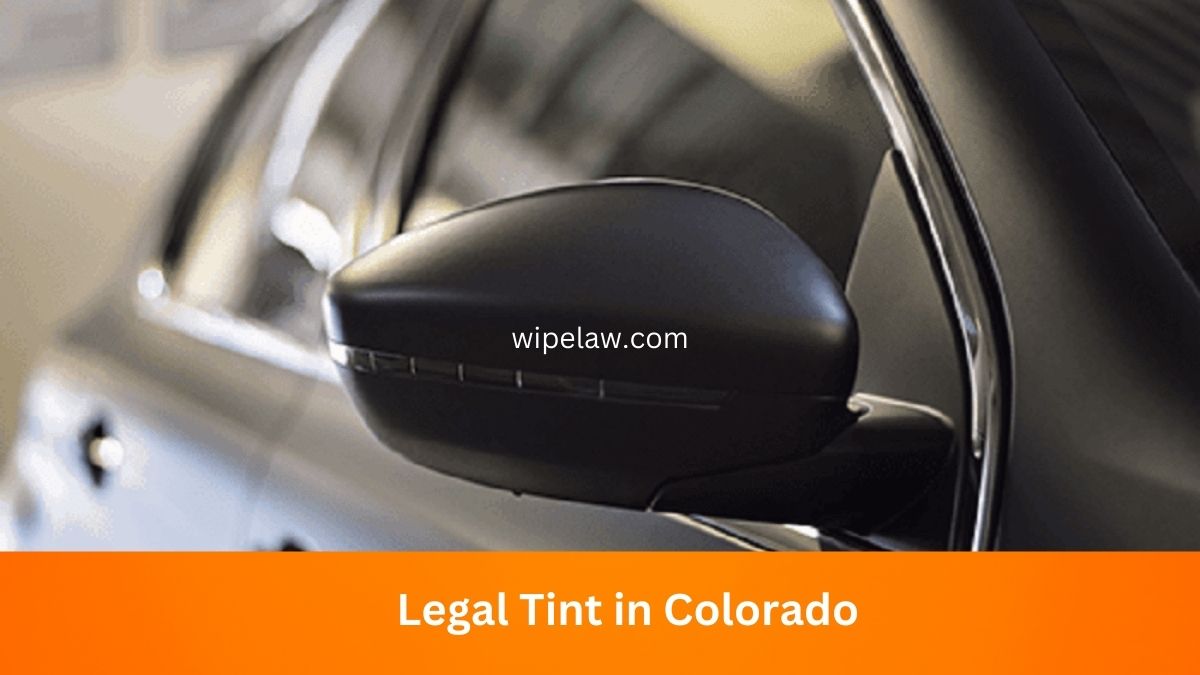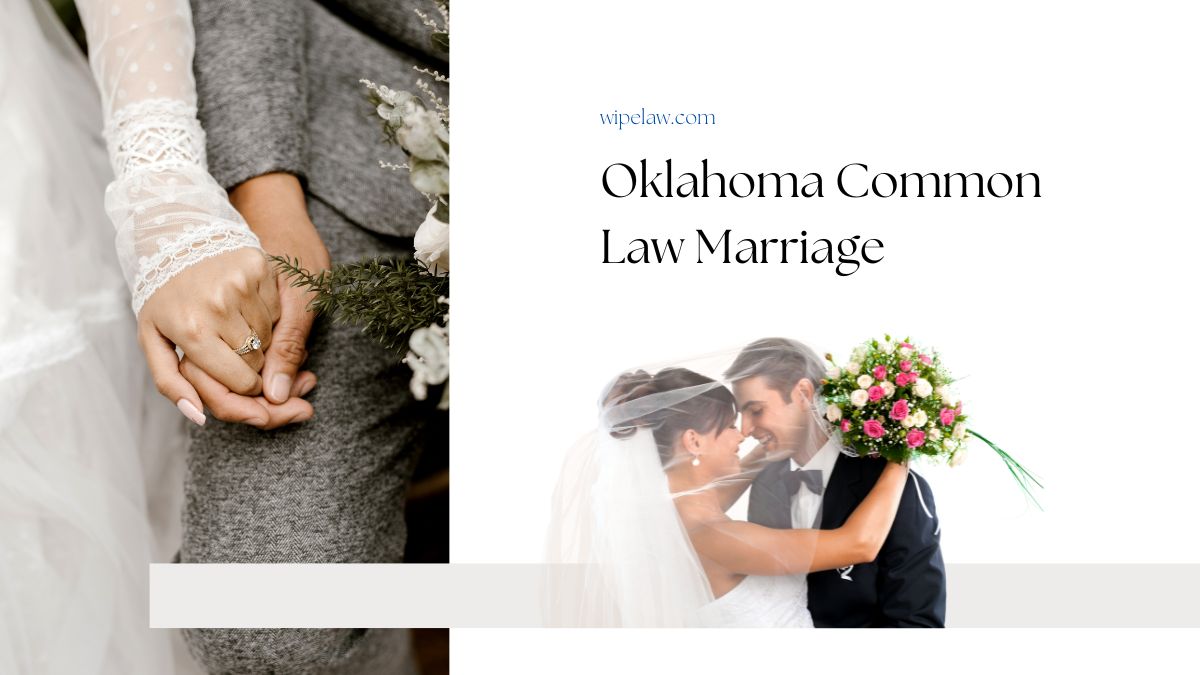Table of Contents
Understand Legal Tint in Colorado, including permitted tint darkness levels (VLT %), exemptions, and penalties for violations. This comprehensive guide covers everything you need to know about Legal Tint in Colorado to ensure compliance and road safety.
Introduction
Window tints are a common addition to vehicles because they provide many advantages, including less glare, interior protection from UV rays, and increased privacy. Nonetheless, the laws and rules that apply in each state determine the legal restrictions on window tinting. These laws are upheld in Colorado to guarantee motorist visibility and road safety. It’s essential to be aware of Colorado’s legal requirements whether you already have tinted windows on your car or are considering getting them done. Everything you need to know about legal tint in Colorado will be covered in this extensive guide, including the allowed tint darkness levels, exclusions, and possible consequences for noncompliance.
The Importance of Understanding Window Tint Laws
It’s essential to follow Colorado’s window tint laws for several reasons. First and foremost, tinted windows that go beyond what is legal might make it difficult to see, which puts other drivers and drivers themselves in danger. Significantly, reducing visibility might result in accidents when changing lanes or in poor light. Furthermore, breaking tint laws can lead to expensive and inconvenient penalties, citations, or even the removal of illegal tint.
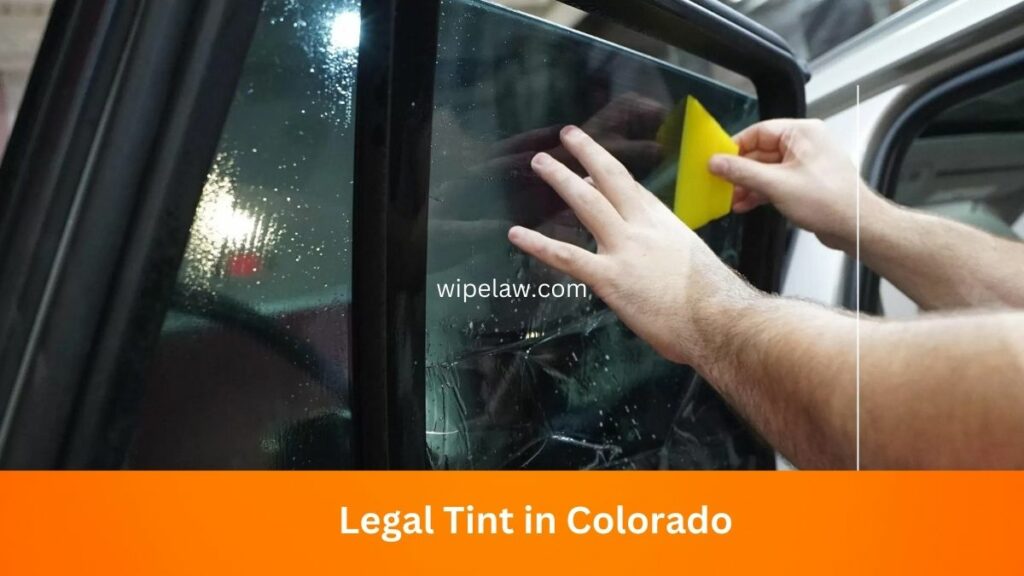
Colorado Window Tint Laws: The Basics:
Colorado has legal limits on window tint based on the Visible Light Transmittance (VLT) percentage—a measurement of the amount of light that may flow through the window film or tint. The tint gets darker as the VLT percentage decreases.
Here are the legal tint in Colorado’s limits for different types of vehicles:
Passenger Vehicles (Cars, SUVs, and Trucks):
- Windshield: Nonreflective tint is permitted above the manufacturer’s AS-1 line, usually 4-6 inches above the top of the windshield.
- Front Side Windows: At least 27% of the light must be able to pass through (VLT ≥ 27%).
- Back Side Windows: Any amount of darkness is OK.
- Rear Window: Any amount of darkness is OK.
Multi-Purpose Vehicles (Vans, Minivans, and Large SUVs):
- Windshield: Over the AS-1 line provided by the manufacturer, non-reflective tint is permitted.
- Front Side Windows: At least 27% of the light must be able to pass through (VLT ≥ 27%).
- Back Side Windows: Any amount of darkness is OK.
- Rear Window: Any darkness is permitted.
Exemptions and Special Cases:
- Medical Exemptions: The tint limitations may not apply to people who have specific medical concerns. Usually, a note or certificate from a doctor is needed.
- Law Enforcement Vehicles: Depending on their particular requirements, police and other law enforcement vehicles may be subject to varying tint standards.
- Window Tint Exemption Permits: Colorado grants exemption permits for some vehicles, such as limos, which may have differing tint restrictions.
It’s crucial to remember that both factory-installed and aftermarket window tints are subject to these laws. Additionally, to comply with Colorado laws, tints must not be reflected.
Penalties for Non-Compliance
Violating legal tint in Colorado can result in various penalties, including:
Traffic Citations and Fines: Depending on the jurisdiction and the seriousness of the infraction, you can be given a traffic citation and fines of between $50 and $500 if the police pull you over and it is discovered that you have unlawful window tint.
Vehicle Inspection Failure: Vehicles with unlawful window tint may fail annual vehicle inspections, necessitating removing or replacing the tint with a legal choice before passing the inspection.
Removal of Illegal Tint: Law enforcement officials may occasionally demand that drivers remove illegal window tint immediately, at their own expense.
Increased Insurance Rates: Some insurance providers may view vehicles with illegal window tint as riskier, which could result in higher insurance costs.
You must abide by legal tint in Colorado to stay out of trouble and protect your and other drivers’ safety.
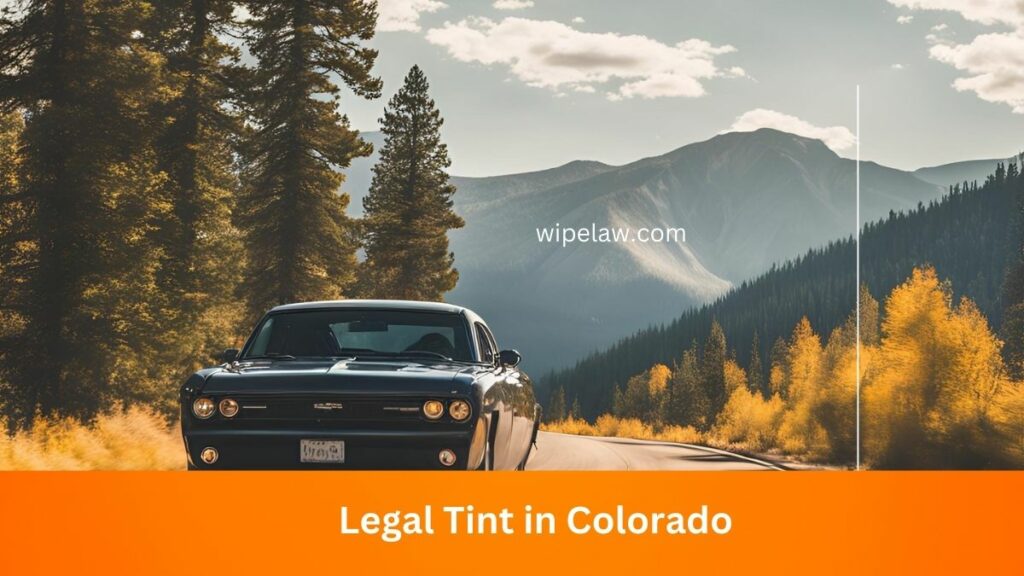
Choosing the Right Window Tint
Choosing a trustworthy tint company that is aware of and complies with Colorado’s tint laws is crucial if you want to have the windows of your car tinted. Expert tint installers can assist you in choosing the right tint darkness level and guarantee proper installation to meet legal requirements.
When choosing a tint, consider UV protection, heat reduction, and privacy. Many contemporary tint films come equipped with cutting-edge technologies like ceramic coatings and infrared rejection to meet legal standards while improving performance.
It is also a good idea to ask the tint company for a compliance certificate, which verifies that the tint satisfies legal tint in Colorado requirements.
Frequently Asked Questions about Legal Tint in Colorado
Can I tint my windshield in Colorado?
No, complete windshield tinting is illegal in Colorado. On the other hand, you can apply a non-reflective tint above the manufacturer’s AS-1 line, which is usually 4-6 inches from the top of the windshield.
Are there different tint laws for commercial vehicles in Colorado?
Yes, commercial vehicles like buses, cabs, and limousines might have differing tint regulations. Speaking with the appropriate authorities or checking the rules explicitly tailored for business vehicles is advisable.
Is there a medical exemption available in Colorado for window tinting?
Yes, medical exemptions are permitted in Colorado for people with specific ailments that require more privacy or sun protection. To get a medical exemption, you will need a note or certificate from your physician.
What happens if I purchase a car with an illegal window tint in Colorado?
It is your responsibility to get a car with illegal window tinting per Colorado laws if you buy it. To avoid fines, you might have to replace or remove the tint.
Can I tint my vehicle’s windows myself in Colorado?
Although you can tint the windows of your car yourself, it is highly advised to use a professional tint business. Violating the law or using tint films that aren’t legal can result in problems with installation and possible safety.
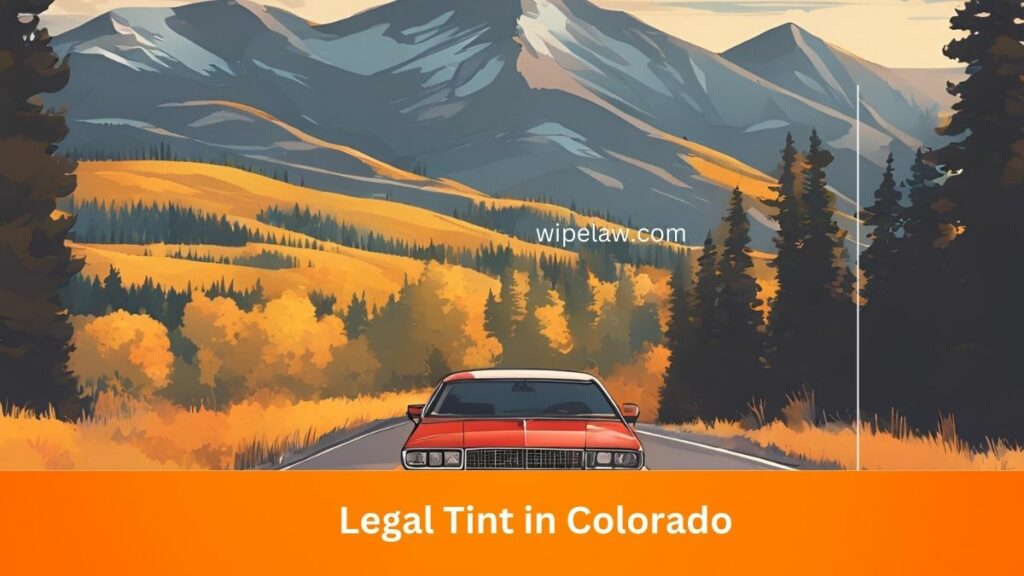
Conclusion
Maintaining your vehicle’s compliance, preventing fines, and guaranteeing road safety depends on your understanding and adherence to legal tint in Colorado. You may take advantage of window tinting’s advantages and still comply with state laws by using the advice provided in this article. Prioritize visibility and safety on the road, consider any medical exemptions you may be eligible for, and speak with trustworthy tint shops. Enjoy the advantages of legal tint in Colorado while remaining informed and compliant.

